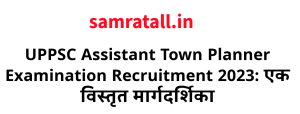Social media has become an integral part of modern communication, allowing college students to connect, share, and express themselves. However, with great power comes great responsibility. Navigating social media requires awareness of the do’s and don’ts to maintain a positive online presence. In this article, we’ll explore essential guidelines for college students to make the most of social media while avoiding potential pitfalls.
Table of Contents
- Introduction
- The Power of Social Media
- Connecting and Networking
- Personal Branding
- Social Media Do’s
- Curate Your Online Persona
- Promote Positive Content
- Engage Authentically
- Social Media Don’ts
- Oversharing Personal Information
- Negative Posting
- Ignoring Privacy Settings
- Building a Professional Image
- Showcasing Achievements
- Engaging in Industry Conversations
- Balancing Social Media and Academics
- Set Time Limits
- Prioritize Offline Interactions
- Conclusion
1. Introduction
Social media platforms offer an avenue for college students to connect with peers, share experiences, and express their thoughts. However, maintaining a responsible and positive online presence is crucial to avoid potential consequences.
2. The Power of Social Media
Connecting and Networking: Social media enables students to connect with classmates, professors, and professionals in their field, fostering valuable relationships.
Personal Branding: Crafting a positive online image can contribute to personal branding, which can impact future career opportunities and networking.
3. Social Media Do’s
Curate Your Online Persona: Present yourself authentically but thoughtfully. Showcase your interests, achievements, and passions in a professional manner.
Promote Positive Content: Share informative and positive content that reflects your values and interests. This can include articles, projects, and accomplishments.
Engage Authentically: Engage in meaningful conversations, contribute to discussions, and offer constructive feedback to build a strong online presence.
4. Social Media Don’ts
Oversharing Personal Information: Avoid sharing sensitive personal information such as home addresses, phone numbers, or financial details on public platforms.
Negative Posting: Refrain from posting negative or offensive content. Negative posts can reflect poorly on your character and have long-lasting consequences.
Ignoring Privacy Settings: Utilize privacy settings to control who can view your content. Regularly review and update these settings to maintain control over your online presence.
5. Building a Professional Image
Showcasing Achievements: Highlight academic accomplishments, internships, volunteer work, and extracurricular activities to showcase a well-rounded profile.
Engaging in Industry Conversations: Follow professionals and organizations in your field to stay informed about industry trends and engage in relevant discussions.
6. Balancing Social Media and Academics
Set Time Limits: Allocate specific times for checking social media to prevent it from interfering with academic responsibilities.
Prioritize Offline Interactions: While online connections are valuable, prioritize in-person interactions to develop meaningful relationships.
7. Conclusion
Social media can be a powerful tool for college students when used responsibly. By following the do’s and avoiding the don’ts, you can create a positive online presence that enhances your personal brand, facilitates networking, and contributes to your academic and professional success.
FAQs
1. Can social media impact my future career? Yes, employers often review social media profiles before making hiring decisions. A positive online presence can enhance your professional image.
2. Should I connect with professors on social media? Connecting with professors on platforms like LinkedIn can be valuable for networking and staying updated on industry insights.
3. How can I maintain privacy on social media? Regularly review and update privacy settings on your social media accounts to control who can access your content.
4. Can social media negatively affect my mental health? Excessive use of social media can contribute to feelings of inadequacy and anxiety. Set healthy usage limits to prioritize your well-being.
5. Is it okay to share personal opinions on social media? Sharing personal opinions is acceptable, but do so respectfully and consider potential implications. Avoid engaging in heated debates that could harm your online image.








